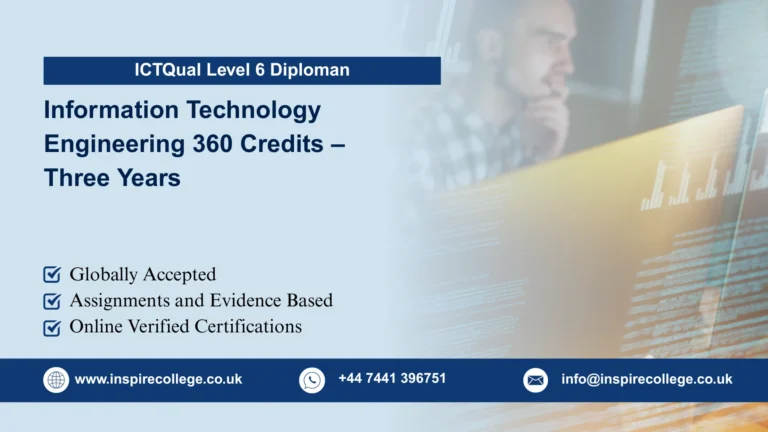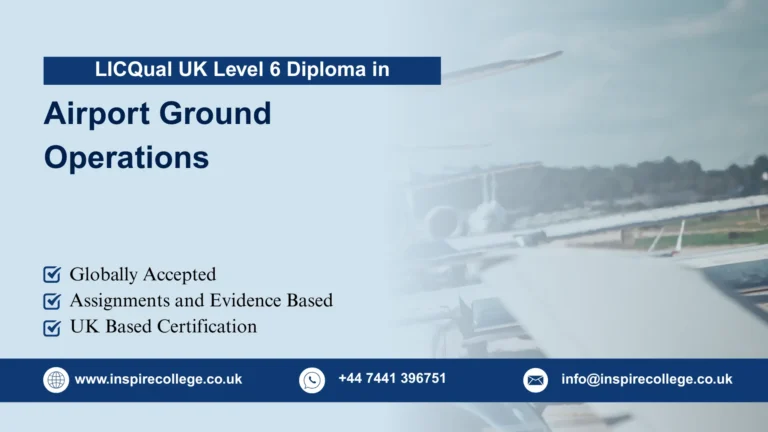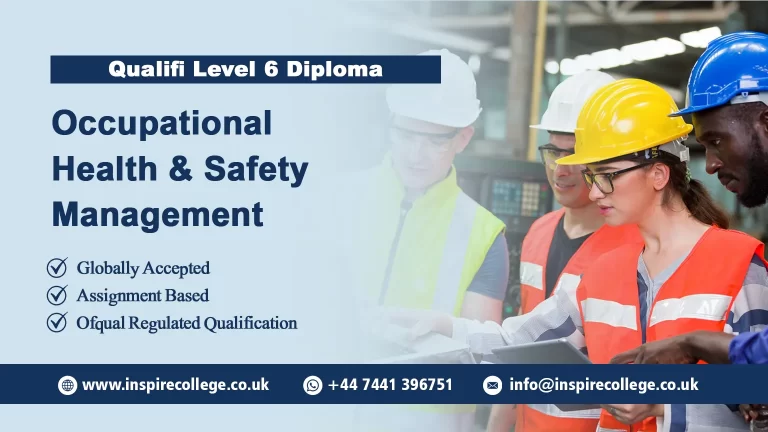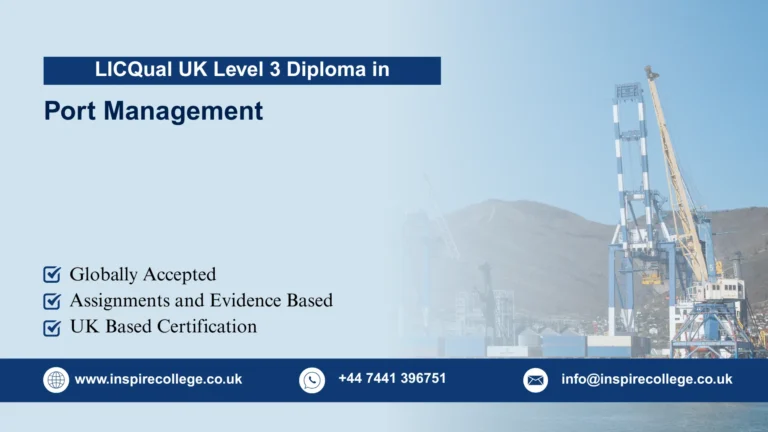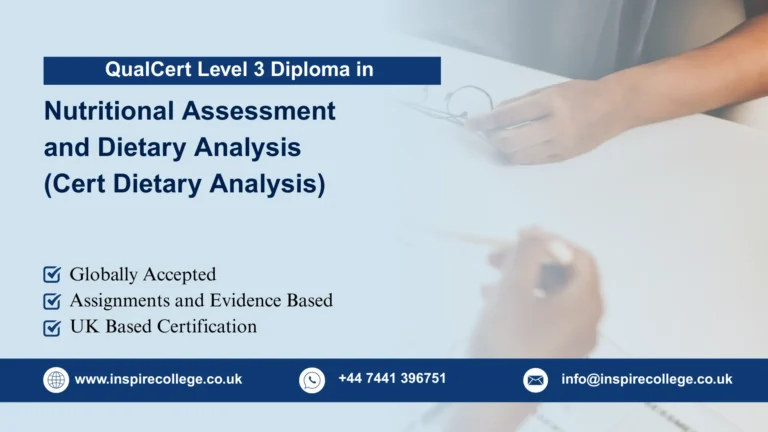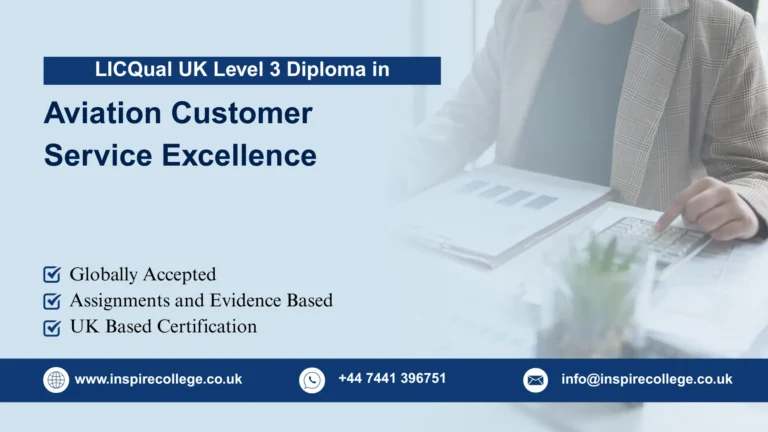
ICTQual AB Level 6 International Diploma in Physiotherapy & Rehabilitation
The ICTQual AB Level 6 International Diploma in Physiotherapy & Rehabilitation is a comprehensive three-year programme (360 credits) designed to equip learners with the advanced knowledge, clinical skills, and professional expertise required to succeed in today’s fast-growing healthcare sector. Recognised internationally, this qualification provides a strong balance of theoretical understanding and practical application, making it ideal for both freshers eager to begin their career in physiotherapy and experienced professionals seeking to enhance their practice.
Throughout the course, learners will gain a deep understanding of human anatomy, rehabilitation techniques, therapeutic exercise, and evidence-based patient care. The programme emphasises hands-on learning, critical thinking, and the ability to design effective treatment plans for diverse health conditions, from sports injuries to long-term physical rehabilitation needs.
Graduates of this diploma are well-positioned for a wide range of career opportunities within hospitals, rehabilitation centres, sports clinics, community health settings, and private practice. The qualification also provides a solid foundation for progression into advanced study or specialist roles in physiotherapy and allied health sciences.
By completing this internationally recognised diploma, learners not only gain a respected professional credential but also develop the confidence, competence, and adaptability required to thrive in a competitive healthcare environment. With its strong industry relevance, structured progression, and global recognition, this course is an excellent pathway for those aiming to make a meaningful impact in physiotherapy and rehabilitation worldwide.
To ensure learners are well-prepared for the ICTQual AB Level 6 International Diploma in Physiotherapy & Rehabilitation, the following entry requirements apply:
- Age Requirement: Applicants must be at least 18 years old at the time of admission.
- Educational Background: A recognised secondary school qualification (A-Levels, High School Diploma, or equivalent international qualification) is required. Learners with a Level 5 diploma or equivalent in health sciences or related fields may also apply for direct entry.
- Work Experience: While prior work experience in healthcare, physiotherapy, or rehabilitation is not mandatory, candidates with relevant clinical or vocational exposure will have an advantage in practical learning and career progression.
- English Language Proficiency: Since the course is delivered in English, learners are expected to demonstrate proficiency through IELTS, TOEFL, or an equivalent qualification (where applicable).
- Additional Requirements: Applicants should display strong motivation, commitment to professional growth, and the ability to work both independently and as part of a team. Some institutions may require an interview or submission of supporting documents to assess suitability for the programme.
Mandatory Units
This qualification, the ICTQual AB Level 6 International Diploma in Physiotherapy & Rehabilitation 360 Credits – Three Years, consists of 36 mandatory units.
Year 1: Foundation in Physiotherapy & Rehabilitation
- Introduction to Human Anatomy and Physiology
- Principles of Rehabilitation Science
- Foundations of Musculoskeletal Physiotherapy
- Introduction to Neurological Rehabilitation
- Therapeutic Exercise and Movement Science
- Basic Patient Assessment Techniques
- Principles of Pain Management
- Introduction to Manual Therapy
- Healthcare Ethics and Professional Practice
- Medical Terminology and Communication Skills
- Introduction to Research Methods in Healthcare
- Health and Safety in Clinical Environments
Year 2: Intermediate Physiotherapy & Rehabilitation
- Advanced Musculoskeletal Rehabilitation
- Neurological Physiotherapy Techniques
- Exercise Prescription and Functional Training
- Clinical Assessment and Diagnostic Methods
- Therapeutic Modalities and Equipment
- Patient-Centred Care and Communication
- Rehabilitation in Sports and Orthopaedics
- Evidence-Based Practice in Physiotherapy
- Pain Science and Management Strategies
- Clinical Decision-Making in Rehabilitation
- Rehabilitation for Special Populations
- Professional Development and CPD Planning
Year 3: Advanced Physiotherapy & Rehabilitation
- Advanced Neurological Rehabilitation Techniques
- Complex Musculoskeletal Management
- Integrated Rehabilitation Programmes
- Leadership and Management in Physiotherapy
- Clinical Research and Evidence Application
- Advanced Manual Therapy and Techniques
- Rehabilitation in Critical Care and Chronic Conditions
- Advanced Patient Assessment and Diagnostics
- Innovation and Technology in Physiotherapy
- Professional Ethics and Legal Considerations
- Independent Project or Capstone in Rehabilitation
- Advanced CPD and Career Development Strategies
Learning Outcomes for the Level 6 International Diploma in Physiotherapy & Rehabilitation 360 Credits – Three Years:
Year 1: Foundational Knowledge
By the end of Year 1, learners will be able to:
Introduction to Human Anatomy and Physiology
- Demonstrate understanding of the structure and function of major body systems.
- Explain the relationship between anatomy, physiology, and rehabilitation practices.
- Apply basic anatomical knowledge to support patient care and assessment.
Principles of Rehabilitation Science
- Describe the fundamental concepts and goals of rehabilitation.
- Explain recovery processes and functional restoration in patients.
- Apply rehabilitation principles to simple case scenarios.
Foundations of Musculoskeletal Physiotherapy
- Identify common musculoskeletal conditions and their causes.
- Apply basic physiotherapy techniques to support musculoskeletal recovery.
- Understand musculoskeletal anatomy relevant to clinical practice.
Introduction to Neurological Rehabilitation
- Describe common neurological conditions and their impact on patients.
- Understand basic interventions used in neurological rehabilitation.
- Recognise the principles of patient-centred neurological care.
Therapeutic Exercise and Movement Science
- Demonstrate knowledge of fundamental exercise techniques.
- Apply basic movement science to enhance mobility and strength.
- Assess patient physical function and prescribe simple exercises.
Basic Patient Assessment Techniques
- Perform fundamental patient assessments including posture and gait analysis.
- Record and interpret basic clinical findings accurately.
- Identify deviations from normal function for rehabilitation planning.
Principles of Pain Management
- Understand biological and psychological aspects of pain.
- Apply simple strategies to support patient comfort and recovery.
- Evaluate pain responses to inform rehabilitation approaches.
Introduction to Manual Therapy
- Demonstrate foundational manual therapy techniques under supervision.
- Understand indications and contraindications for manual therapy.
- Apply basic manual skills safely during patient interaction.
Healthcare Ethics and Professional Practice
- Explain ethical principles and professional responsibilities in healthcare.
- Demonstrate understanding of patient confidentiality and consent.
- Apply ethical decision-making in basic clinical scenarios.
Medical Terminology and Communication Skills
- Use correct medical terminology in professional communication.
- Communicate effectively with patients and healthcare teams.
- Interpret and convey clinical information clearly.
Introduction to Research Methods in Healthcare
- Understand basic research concepts and study designs.
- Analyse simple research data for application in practice.
- Recognise the importance of evidence-based practice in rehabilitation.
Health and Safety in Clinical Environments
- Apply standard health and safety procedures in clinical settings.
- Identify potential risks and implement risk mitigation strategies.
- Ensure adherence to infection control and patient safety protocols.
Year 2: Intermediate Proficiency
By the end of Year 2, learners will be able to:
Advanced Musculoskeletal Rehabilitation
- Assess and manage musculoskeletal conditions effectively.
- Apply intermediate physiotherapy techniques in patient care.
- Evaluate rehabilitation outcomes and adjust treatment plans.
Neurological Physiotherapy Techniques
- Implement targeted neurological interventions for various conditions.
- Monitor patient progress and adapt treatment strategies.
- Integrate theoretical knowledge with clinical practice.
Exercise Prescription and Functional Training
- Design individualised exercise programmes for rehabilitation.
- Evaluate functional outcomes and adjust training plans.
- Apply safe exercise techniques to promote patient recovery.
Clinical Assessment and Diagnostic Methods
- Conduct comprehensive patient assessments using clinical tools.
- Interpret diagnostic results to inform treatment planning.
- Identify patient needs and establish rehabilitation priorities.
Therapeutic Modalities and Equipment
- Select appropriate therapeutic tools and modalities.
- Apply equipment safely and effectively in treatment sessions.
- Evaluate the effectiveness of therapeutic interventions.
Patient-Centred Care and Communication
- Engage patients in shared decision-making and goal setting.
- Demonstrate empathetic and clear communication skills.
- Adapt communication to diverse patient needs and backgrounds.
Rehabilitation in Sports and Orthopaedics
- Manage sports-related injuries using evidence-based techniques.
- Apply orthopaedic rehabilitation strategies to restore function.
- Assess risk and plan interventions for optimal recovery.
Evidence-Based Practice in Physiotherapy
- Critically appraise research literature for clinical application.
- Integrate evidence into clinical decision-making.
- Demonstrate understanding of best practices in patient care.
Pain Science and Management Strategies
- Understand advanced pain mechanisms and pathways.
- Implement multi-modal pain management strategies.
- Evaluate patient responses and adapt interventions accordingly.
Clinical Decision-Making in Rehabilitation
- Apply critical thinking to complex rehabilitation cases.
- Make informed decisions to optimise patient outcomes.
- Integrate assessment findings into clinical planning.
Rehabilitation for Special Populations
- Adapt rehabilitation strategies for children, elderly, and chronic patients.
- Recognise the unique needs of different patient groups.
- Plan interventions that are safe and effective for special populations.
Professional Development and CPD Planning
- Plan and monitor personal professional development.
- Identify opportunities to expand knowledge and skills.
- Maintain standards of practice in line with CPD principles.
Year 3: Advanced Specialization and Application
By the end of Year 3, learners will be able to:
Advanced Neurological Rehabilitation Techniques
- Implement complex neurological rehabilitation interventions.
- Evaluate patient progress and adjust strategies for optimal outcomes.
- Integrate advanced knowledge into practice for specialised cases.
Complex Musculoskeletal Management
- Manage complicated musculoskeletal conditions with advanced techniques.
- Analyse patient responses to treatment and refine interventions.
- Develop comprehensive care plans for musculoskeletal rehabilitation.
Integrated Rehabilitation Programmes
- Design holistic rehabilitation programmes tailored to individual needs.
- Coordinate multi-disciplinary approaches to care.
- Monitor and evaluate outcomes for continuous improvement.
Leadership and Management in Physiotherapy
- Demonstrate leadership in clinical settings.
- Manage teams and resources effectively.
- Implement strategies for service improvement and patient care excellence.
Clinical Research and Evidence Application
- Conduct independent research in rehabilitation practice.
- Apply research findings to improve patient outcomes.
- Critically analyse evidence for integration into clinical protocols.
Advanced Manual Therapy and Techniques
- Perform advanced manual therapy interventions safely.
- Evaluate therapeutic effectiveness and adapt techniques.
- Demonstrate high-level clinical competence in manual therapy.
Rehabilitation in Critical Care and Chronic Conditions
- Manage rehabilitation for patients with complex and chronic conditions.
- Implement interventions that improve functional independence.
- Collaborate with multidisciplinary teams for comprehensive care.
Advanced Patient Assessment and Diagnostics
- Perform in-depth assessments using advanced diagnostic tools.
- Interpret complex clinical data to guide rehabilitation.
- Develop precise, evidence-informed treatment plans.
Innovation and Technology in Physiotherapy
- Integrate new technologies into rehabilitation programmes.
- Evaluate digital tools for patient monitoring and care delivery.
- Explore innovative approaches to improve outcomes.
Professional Ethics and Legal Considerations
- Apply ethical principles in complex clinical scenarios.
- Ensure compliance with legal and regulatory requirements.
- Maintain professional accountability in patient care.
Independent Project or Capstone in Rehabilitation
- Conduct a substantial research or practice-based project.
- Analyse findings and present evidence-based conclusions.
- Demonstrate mastery of physiotherapy and rehabilitation principles.
Advanced CPD and Career Development Strategies
- Plan long-term professional growth and career development.
- Identify opportunities for advanced specialisation and leadership.
- Maintain lifelong learning and reflective practice to enhance professional expertise.
The ICTQual AB Level 6 International Diploma in Physiotherapy & Rehabilitation is a three-year, 360-credit programme designed for learners from a wide range of backgrounds who are eager to build a rewarding career in healthcare. With international recognition and strong industry relevance, this diploma attracts students at different stages of their educational and professional journey.
1. Fresh School Leavers
- Learners who have recently completed their secondary education (A-Levels, High School Diploma, or equivalent).
- Ideal for students who are ready to begin their professional journey in physiotherapy with a structured academic and clinical foundation.
- Provides a direct entry point into healthcare careers without requiring prior work experience.
2. Aspiring Healthcare Professionals
- Individuals who want to enter the healthcare sector with a respected international qualification.
- Suitable for learners aiming to secure employment in hospitals, rehabilitation centres, sports clinics, private practices, and community health organisations.
- Equips students with essential therapeutic and rehabilitation skills to meet global healthcare demands.
3. Current Healthcare Practitioners
- Nurses, healthcare assistants, and allied health professionals who wish to upskill, specialise, or transition into physiotherapy roles.
- Enhances existing clinical knowledge and provides opportunities for career advancement within rehabilitation and therapy services.
- Supports professional growth by adding specialised competencies in evidence-based physiotherapy practice.
4. International Learners
- Students from around the world seeking a globally recognised qualification.
- Prepares learners to adapt to diverse healthcare systems and provide culturally sensitive patient care.
- Offers international mobility, making it an excellent choice for learners who aspire to work across borders.
5. Career Changers
- Individuals from non-medical fields who are passionate about helping others and want to move into the healthcare sector.
- Provides the academic grounding and practical training necessary to shift careers successfully.
- Offers a fulfilling new pathway for those seeking personal and professional transformation.
Why This Programme is Ideal
This diploma is perfect for learners who want to:
- Gain advanced clinical and rehabilitation skills.
- Build confidence and competence in physiotherapy practice.
- Meet international healthcare standards and pursue global opportunities.
- Progress into higher studies or specialised roles within physiotherapy and allied health sciences.
By completing this three-year, 360-credit diploma, learners position themselves for success in one of the world’s most impactful and rapidly growing healthcare professions.
As an ICTQual AB Approved Training Centre, we offer learners two flexible pathways to achieve the Level 6 International Diploma in Medical Laboratory Technology. All learners must register with our centre to enrol and access course materials.
Route 1 – Experienced Professionals
- Designed for learners with at least 6 years of verifiable professional experience in medical laboratory technology, diagnostics, or related healthcare fields.
- Learners are required to submit documented evidence of their prior work, including laboratory projects, diagnostic procedures, quality assurance practices, and professional responsibilities.
- Our centre carefully evaluates the learner’s existing skills and knowledge against the diploma’s required learning outcomes.
- Where minor gaps are identified, targeted guidance or additional training will be provided to ensure full compliance with diploma standards.
- Upon successful verification, learners are awarded the ICTQual AB Level 6 International Diploma in Medical Laboratory Technology without the requirement to complete all 36 assignments, enabling fast-track recognition of their professional expertise.
Route 2 – Fresh Learner
- Designed for candidates with no prior professional experience in medical laboratory technology.
- Learners must complete the full three-year, 360-credit programme, which includes 36 assignments, case studies, and practical assessments.
- Each assessment is structured to demonstrate theoretical understanding and the application of laboratory techniques in real-world clinical and diagnostic scenarios.
- On successful completion, learners are awarded the ICTQual AB Level 6 International Diploma in Medical Laboratory Technology, gaining a solid foundation for professional practice in hospitals, diagnostic centres, research laboratories, and healthcare organisations.
Both routes provide a globally recognised and industry-relevant qualification, allowing experienced professionals to validate their expertise and fresh learners to build comprehensive knowledge and skills to advance their careers in the medical laboratory and healthcare sector.
Register Now
FAQs for ICTQual AB Level 6 International Diploma in Physiotherapy & Rehabilitation

